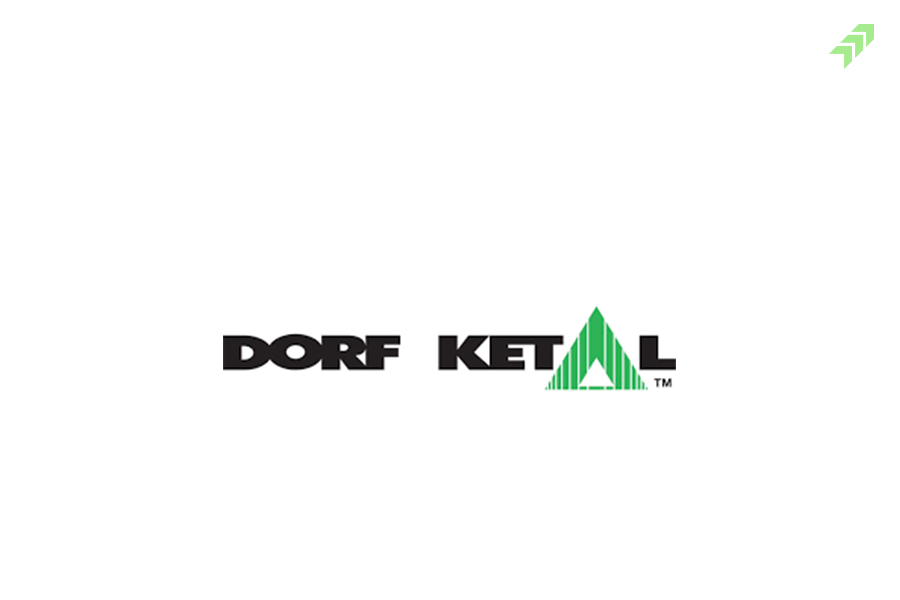IPO allotment refers to the process of allocating shares to investors who have applied for them during an initial public offering (IPO). It is a crucial step in the IPO process as it determines how many shares each investor will receive based on various factors such as demand, availability, and regulatory requirements. The IPO allotment is typically conducted by the underwriters or syndicate members, who carefully assess the applications and allocate shares accordingly.
The importance of IPO allotment for retail investors
The IPO allotment is particularly important for retail investors, as it allows them to participate in the offering and potentially benefit from the company's growth. It provides an opportunity for individual investors to own a stake in a publicly traded company and potentially generate returns on their investment. Additionally, the fair and transparent allocation process ensures that all investors, including retail investors, have an equal chance of receiving shares based on their application and market conditions.
The IPO allotment process for retail investors is designed to ensure fairness and equal opportunity. Retail investors are typically allocated a certain percentage of the total shares available for public offerings, allowing them to participate in the company's growth alongside institutional investors. This allocation process aims to prevent any preferential treatment or unfair advantages, ensuring that retail investors have a fair chance of receiving shares based on their application and market conditions.
An overview of the IPO allotment process for retail investors
The IPO allotment process for retail investors involves submitting an application for shares during the IPO subscription period. Once the subscription period ends, the shares are allocated based on various factors, such as the number of shares applied for, market demand, and the total number of shares available for retail investors. This process ensures that retail investors have an equal opportunity to participate in the IPO and benefit from the company's growth potential.
Factors influencing the IPO allotment to retail investors
Include the size of the retail investor's application, their investment history, and any priority given to certain types of investors, such as employees or existing shareholders. Additionally, market conditions and demand for the company's shares can also impact the allocation process.
IPO Allotment: Predefined Rules and Regulations
- The Registrar, in cooperation with the designated stock market, allocates shares in an initial public offering (IPO) based on the quantity of shares offered and the bids received from investors in the relevant investor category (i.e., retail, NII, QIB).
- The IPO allotment rule varies depending on the type of investor (retail, NII, or QIB).
- For allocation purposes, only complete submissions will be reviewed. Applications that are deemed invalid (those that use the wrong Demat account number, have duplicate PANs, etc.) will be denied.
- Allocation consideration is restricted to those applications received at or above the threshold price.
- In the event of an under-subscription in a particular category (other than the QIB category), the issuer, the registrar, the exchange, and the lead manager may use an over-subscription in a different category to make up the difference.
- The registrar develops and publishes the Basis of Allotment document, which details the allotment, and unsubscribed shares in the QIB category are not eligible for subscription in other categories.
IPO Allotment Method
The IPO allotment mechanism for any IPO, i.e., Tata Technologies’, IREDA, Gandhar Oil, or any other, strictly varies as per investor classification and the IPO subscription level status.
Note:
- First of all, let the IPO be categorized into two major parts: undersubscribed or oversubscribed.
- If an IPO is undersubscribed in each investor group, the whole allotment will be distributed to all investors who submitted a valid application. The IPO will be successful if it is subscribed to by at least 90% or more. If one category of the IPO is oversubscribed while another is undersubscribed, the oversubscription may be adjusted with the undersubscribed portion of the other category, with the exception of QIB.
- If there is an overwhelming demand for shares (in case of oversubscription), i.e., Tata Technologies, Gandhar Oil, or IREDA, the issuer will use a lottery system or divide them up proportionally among the various types of investors. Let us have a look at the IPO allocation criteria for each investor category.
IPO Allotment by Investor Category
-
IPO Allotment to Retail Investors
If there are a sufficient number of retail investors and applications for the first public offering, each retail investor will receive at least one lot. Lots are groups of shares sold in an initial public offering. In a Mainboard IPO, x shares are valued at approximately Rs 15,000. In a SME IPO, x shares are valued at around Rs 1,00,000. The issuance price and the number of shares per lot (lot size) are both publicized by the issuing company. The maximum number of retail investors who could get allotment in an IPO is derived by dividing the total number of shares offered in the retail reserved category by the lot size.
Maximum Retail Investors (allotees) = (Total shares offered in the retail category) / (IPO lot size)
For example, let’s take the example of the TATA Technologies IPO. 1,84,57,919 shares were reserved for retail. The lot size of the IPO is 30 shares. Maximum Retail Investors (Allotees) = 1,84,57,919 / 30 = 6,15,264 investors.
Basis of Allotment
Scenario 1: If 6,00,000 investors apply for 1,80,00,000 shares, all investors receive the full allotment because the retail category is not fully subscribed.
Scenario 2: If 7,00,000 investors apply for 2,00,00,000 shares, it is not possible to allocate at least one lot to each investor because there are only 18487919 shares for retail. In this case, the allocation is made by a computerized lottery system.
Scenario 3: If 6,00,000 investors apply for 2,00,00,000 shares, each investor will initially be allocated at least one lot, i.e., 30 shares. Of the remaining [18457919-(600000*30)] 18457919 shares, the allotment is then made on a proportionate basis.
2. IPO allotment in NII (Non-Institutional Investors) category
The NII investor segment can be divided into 2 major segments:
a.) Small NII (Rs 2 lacs to Rs 10 lacs): Reserved for 1/3 of the non-institutional investor fraction
b.) Big NII (above Rs 10 lacs): Reserved for 2/3 of the non-institutional investor fraction
Depending on the availability of shares, each NII investor will be given the minimum bid lot required for their investment category. For applications over Rs 2 lakhs, the minimum bid lot shall be the same as the minimum application size. If there are any shares remaining after the minimum bid lot has been allotted, they will be distributed on a pro rata basis.
All investors will receive their full allocation, even if the offering is undersubscribed. If there is an oversubscription in another category, the unsold NII might be utilized to cover the shortfall.
IPO allotment in the QIB (Qualified Institutional Buyers) category
The process for QIB remains the same as compared to previous categories. In the event of oversubscription, the allotment to QIB investors would be made on a proportionate basis. In the event of an undersubscription, the whole allocation will be distributed to all QIB investors. The most important point to note is that amounts that were not subscribed for in the QIB category cannot be reallocated to other types of investors.
Up to 5% of the QIB category can be allocated to the mutual funds in the QIB category. The allocation shall be made proportionally up to 5% of the QIB category if demand for the mutual funds exceeds that threshold. If demand from mutual funds is below 5% of the QIB category, however, all mutual funds will receive their full allocation. Up to 95% of the QIB category may be satisfied by allocating the remaining unsubscribed fraction to satisfy the demand of other QIB investors.
3. IPO Allotment to Shareholders
If there is an overwhelming demand for shares, distribution will be made on a pro rata basis.
Bids exceeding Rs 200,000 in the shareholder category and in any other category would be deemed multiple bids and rejected if lodged by the same investor.
In addition to placing bids in the shareholder and employee (if applicable) categories, an investor can place bids in any other category up to the maximum of Rs 200,000. Such bids will not be treated as duplicate bids and will be eligible for allotment in their appropriate category according to the criteria outlined above.
Key Challenges in IPO Allotment for Retail Investors
Limited availability of shares for retail investors due to high demand
One key challenge in IPO allotment for retail investors is the limited number of shares available for allocation. As retail investors typically have smaller investment amounts compared to institutional investors, they may face difficulty securing a significant allocation of shares. Another challenge is the potential for oversubscription, where the demand for shares exceeds the supply, leading to a pro-rata allotment process where each investor receives only a portion of their requested shares.
Impact of oversubscription
The impact of oversubscription on retail investors' chances of receiving shares can be significant. With limited supply and high demand, retail investors may end up receiving only a fraction of the shares they had hoped for. This can be frustrating and may result in missed investment opportunities or the need to invest in alternative options. Additionally, oversubscription can also lead to increased volatility in the stock price, making it even more challenging for retail investors to make profitable investments.
Influence of the grey market on IPO allotment for retail investors
The grey market can have a significant influence on IPO allotment for retail investors. In the gray market, shares of an IPO are bought and sold before they are officially listed on the stock exchange. Retail investors who participate in the gray market may be able to secure shares at a premium or discount to the IPO price, depending on market demand. This can further impact the allocation of shares during the IPO, potentially reducing the number of shares available for retail investors and affecting their chances of receiving their desired allotment.
IPO Allotment Status Check
If you are an investor in an initial public offering (IPO), you can check your allotment status to see if you have received your shares. An investor needs either a PAN number, an application number, or a demat account number to verify the allocation status. On the day of the initial public offering allotment, the IPO allotment status will be posted online by the Registrar to the Issue. If investors have received the allocation, the page will show the total number of shares allocated; otherwise, the page will be blank.
Steps to check the IPO allotment status
- Log on to the registrar's website.
- Select the IPO from the dropdown.
- Enter your PAN number, application number, or DP Client ID.
- Submit and check the allotment status.


















No comment yet, add your voice below!